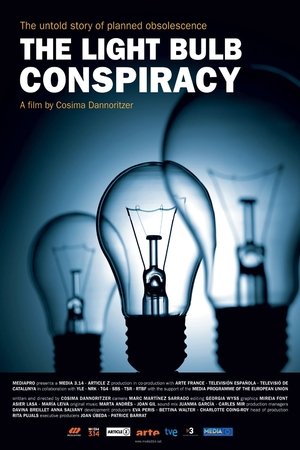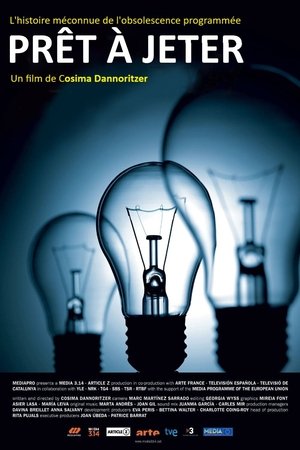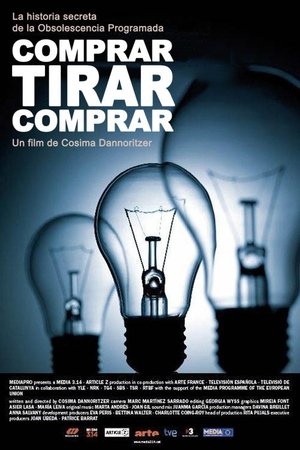The Light Bulb Conspiracy (2010) [N/A]
Featuring:
Richard Jones, Molly Malcolm, Steve Bunn
Written by:
Cosima Dannoritzer
Directed by:
Cosima Dannoritzer
Release Date:
November 30, 2010
Original Title:
Prêt-à-jeter
Alternate Titles:
A Conspiração da Lâmpada
Comprar, llençar, comprar
Comprar, tirar, comprar
Garantert kort levetid
Glödlampskonspirationen
Hehkulamppuhuijaus
Il complotto della lampadina
Kaufen für die Müllhalde
Obsolescência Programada - The Light Bulb Conspiracy
Prêt à jeter
Prêt-à-jeter
Pyramids of Waste
The Lightbulb Conspiracy
Купить, выбросить, купить
Genres:
Documentary
Production Companies:
ARTE France Cinéma
Media 3.14
TV3
TVE
Production Countries:
France | Spain
Ratings / Certifications:
FR: U
Runtime: 75
The untold story of Planned Obsolescence
Once upon a time... consumer goods were built to last. Then, in the 1920’s, a group of businessmen realized that the longer their product lasted, the less money they made, thus Planned Obsolescence was born, and manufacturers have been engineering products to fail ever since. Combining investigative research and rare archive footage with analysis by those working on ways to save both the economy and the environment, this documentary charts the creation of ‘engineering to fail’, its rise to prominence and its recent fall from grace.
Once upon a time..... products were made to last. Then, at the beginning of the 1920s, a group of businessmen were struck by the following insight: 'A product that refuses to wear out is a tragedy of business' (1928). Thus Planned Obsolescence was born. Shortly after, the first worldwide cartel was set up expressly to reduce the life span of the incandescent light bulb, a symbol for innovation and bright new ideas, and the first official victim of Planned Obsolescence. During the 1950s, with the birth of the consumer society, the concept took on a whole new meaning, as explained by flamboyant designer Brooks Stevens: 'Planned Obsolescence, the desire to own something a little newer, a little better, a little sooner than is necessary...'. The growth society flourished, everybody had everything, the waste was piling up (preferably far away in illegal dumps in the Third World) - until consumers started rebelling... Can the modern growth society survive without Planned Obsolescence? Did the eternal light bulb ever exist? How can a tiny chip 'kill' a product? How did two artists from New York manage to extend the lives of millions of iPods? Is Planned Obsolescence itself becoming obsolete?
Additional information:
The Search Form
Video
Click each video panel to show or hide.
Although TheMovieDB might provide a key to a YouTube video, there is no guarantee that the video might be present at YouTube.













